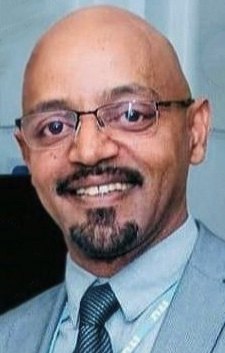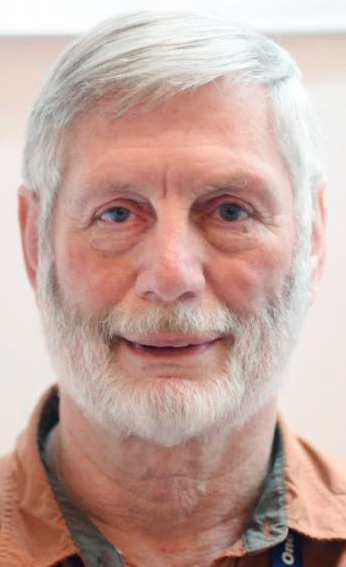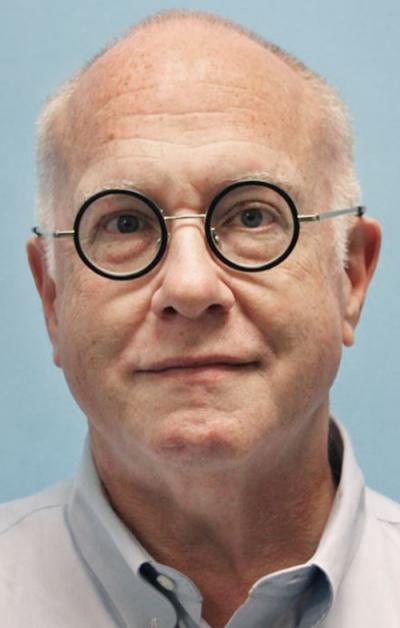

 On the 5th of November 2019, the release of the first of ITU's Measuring Digital Development series coincided with Freedom House's unveiling of its Freedom on Net 2019 report. This serendipity prompted me to write this blog note after carefully examining both reports. On one hand, ITU's analytical publication, with its new friendly format, emphasizes that Internet use continues to spread, warning however that the digital gender gap is widening. more
On the 5th of November 2019, the release of the first of ITU's Measuring Digital Development series coincided with Freedom House's unveiling of its Freedom on Net 2019 report. This serendipity prompted me to write this blog note after carefully examining both reports. On one hand, ITU's analytical publication, with its new friendly format, emphasizes that Internet use continues to spread, warning however that the digital gender gap is widening. more
 Tomorrow EFF, NTEN, Fight for the Future, Demand Progress, and other organizations will hold a rally outside of ICANN HQ from 9-11 am. You know about the rally, and you should all attend this event! Whatever your feelings about the sale of .ORG, you are leaders of the GNSO, the body that makes gTLD policy. This is a gTLD event, and registrants are trying to talk with ICANN, and they are trying to talk with YOU. more
Tomorrow EFF, NTEN, Fight for the Future, Demand Progress, and other organizations will hold a rally outside of ICANN HQ from 9-11 am. You know about the rally, and you should all attend this event! Whatever your feelings about the sale of .ORG, you are leaders of the GNSO, the body that makes gTLD policy. This is a gTLD event, and registrants are trying to talk with ICANN, and they are trying to talk with YOU. more
 I have bad news for anybody still clinging to their flip phones. All of the big cellular carriers have announced plans to end 3G cellular service, and each has a different timeline in mind... The amount of usage on 3G networks is still significant. GSMA reported that at the end of 2018 that as many as 17% of US cellular customers still made 3G connections, which accounted for as much as 19% of all cellular connections. more
I have bad news for anybody still clinging to their flip phones. All of the big cellular carriers have announced plans to end 3G cellular service, and each has a different timeline in mind... The amount of usage on 3G networks is still significant. GSMA reported that at the end of 2018 that as many as 17% of US cellular customers still made 3G connections, which accounted for as much as 19% of all cellular connections. more
 As the rollout of fiber to the home project (FttH) remains a slow process, it is no wonder that more and more people are looking towards mobile as a potential alternative. Obviously, mobile communication has improved over recent years in providing excellent access to broadband. It has also become more affordable. At the same time, there is the hype surrounding 5G, and the public relations and media machines of the vendors involved makes you believe that this will become a real competitor to the slow-moving FttH developments. more
As the rollout of fiber to the home project (FttH) remains a slow process, it is no wonder that more and more people are looking towards mobile as a potential alternative. Obviously, mobile communication has improved over recent years in providing excellent access to broadband. It has also become more affordable. At the same time, there is the hype surrounding 5G, and the public relations and media machines of the vendors involved makes you believe that this will become a real competitor to the slow-moving FttH developments. more
 I was glad to join Meghna Chakrabarti on NPR this week for an engaging discussion about Ethos Capital's acquisition of Public Interest Registry (PIR) from the Internet Society, which you can listen to here. I always appreciate an opportunity to answer questions about .ORG, and was pleased to be joined by Andrew Sullivan, President and Chief Executive Officer of the Internet Society, and Esther Dyson, founding chairwoman of ICANN from 1998 to 2000. more
I was glad to join Meghna Chakrabarti on NPR this week for an engaging discussion about Ethos Capital's acquisition of Public Interest Registry (PIR) from the Internet Society, which you can listen to here. I always appreciate an opportunity to answer questions about .ORG, and was pleased to be joined by Andrew Sullivan, President and Chief Executive Officer of the Internet Society, and Esther Dyson, founding chairwoman of ICANN from 1998 to 2000. more
 Private equity firm Ethos Capital's attempt to take control of .org, the Internet domain that's home to most of the world's non-profit and public-benefit organizations, has triggered an interesting crisis in Internet governance. The Internet Corporation for Assigned Names and Numbers, or ICANN, is the body responsible for regulating the global domain name industry. For the first time since oversight responsibility over ICANN was passed from the United States National Telecommunications and Information Administration... more
Private equity firm Ethos Capital's attempt to take control of .org, the Internet domain that's home to most of the world's non-profit and public-benefit organizations, has triggered an interesting crisis in Internet governance. The Internet Corporation for Assigned Names and Numbers, or ICANN, is the body responsible for regulating the global domain name industry. For the first time since oversight responsibility over ICANN was passed from the United States National Telecommunications and Information Administration... more
 For the first time in my memory, broadband has entered into U.S. presidential politics. This is an important milestone for rural broadband – not because of the proposals being made by candidates, but because it indicates that the voices of those without rural broadband have reached upward to the top of the political system. I'm sure that when the presidential candidates go to rural areas, they are asked if they can help find a solution for the lack of broadband in many rural counties. more
For the first time in my memory, broadband has entered into U.S. presidential politics. This is an important milestone for rural broadband – not because of the proposals being made by candidates, but because it indicates that the voices of those without rural broadband have reached upward to the top of the political system. I'm sure that when the presidential candidates go to rural areas, they are asked if they can help find a solution for the lack of broadband in many rural counties. more
 Last month, for the 20th anniversary of Y2K, I was asked about my experiences. (Short answer: there really was a serious potential problem, but disaster was averted by a lot of hard work by a lot of unsung programmers.) I joked that, per this T-shirt I got from a friend, the real problem would be on January 19, 2038, and 03:14:08 GMT. Why might that date be such a problem? On Unix-derived systems, including Linux and MacOS, time is stored internally as the number of seconds since... more
Last month, for the 20th anniversary of Y2K, I was asked about my experiences. (Short answer: there really was a serious potential problem, but disaster was averted by a lot of hard work by a lot of unsung programmers.) I joked that, per this T-shirt I got from a friend, the real problem would be on January 19, 2038, and 03:14:08 GMT. Why might that date be such a problem? On Unix-derived systems, including Linux and MacOS, time is stored internally as the number of seconds since... more
 When .org prices rise, who suffers – nonprofits or speculators? Will Ethos Capital raise prices more aggressively than ISOC would? Vint Cerf attributed concerns about higher prices to speculators: "Of course, companies that hold domain names in the tens of thousands for speculative purposes might find such increases more troubling, but I don't have much sympathy for that business model in the context of the organizations the .org brand is intended to serve." more
When .org prices rise, who suffers – nonprofits or speculators? Will Ethos Capital raise prices more aggressively than ISOC would? Vint Cerf attributed concerns about higher prices to speculators: "Of course, companies that hold domain names in the tens of thousands for speculative purposes might find such increases more troubling, but I don't have much sympathy for that business model in the context of the organizations the .org brand is intended to serve." more
 As we embark on a new year and decade, it seemed worthwhile to take a peek at the principal forums for global 5G industry technical collaboration and do a quick assessment of what is occurring and who are the "leaders." The leadership dimension is especially relevant in Washington these days – which is suffering from a peculiar 5G dementia. As the year ended, there were no less than 35 current 5G related Congressional legislative actions, several of which actually passed one of the chambers. more
As we embark on a new year and decade, it seemed worthwhile to take a peek at the principal forums for global 5G industry technical collaboration and do a quick assessment of what is occurring and who are the "leaders." The leadership dimension is especially relevant in Washington these days – which is suffering from a peculiar 5G dementia. As the year ended, there were no less than 35 current 5G related Congressional legislative actions, several of which actually passed one of the chambers. more
 Vint Cerf has posted comments in support of the pending sale of PIR and the .org registry to Ethos Capital. Vint's Comments . Vint is a respected member of the Internet community, and his comments need close attention and careful assessment. Some of his comments have been discussed here earlier. Other comments, posted here and elsewhere, have either supported the sale or raised questions. more
Vint Cerf has posted comments in support of the pending sale of PIR and the .org registry to Ethos Capital. Vint's Comments . Vint is a respected member of the Internet community, and his comments need close attention and careful assessment. Some of his comments have been discussed here earlier. Other comments, posted here and elsewhere, have either supported the sale or raised questions. more
 Opensignal recently published a report that looks around the world at the quality of cellular video. Video has become a key part of the cellular experience as people are using cellphones for entertainment, and since social media and advertising have migrated to video. The use of cellular video is exploding. Netflix reports that 25% of its total streaming worldwide is sent to mobile devices. The new Disney+ app that was just launched got over 3 million downloads of their cellular app in just the first 24 hours. more
Opensignal recently published a report that looks around the world at the quality of cellular video. Video has become a key part of the cellular experience as people are using cellphones for entertainment, and since social media and advertising have migrated to video. The use of cellular video is exploding. Netflix reports that 25% of its total streaming worldwide is sent to mobile devices. The new Disney+ app that was just launched got over 3 million downloads of their cellular app in just the first 24 hours. more
 ICANN's Board will meet soon, perhaps even tomorrow, to discuss the dot-org domain sale. It is a pivotal inflection point in the history of Internet governance. When Internet Society (ISOC) was awarded the dot-org domain over ten other bids in 2002, evaluators voiced concerns about their ability to steward it. The report explains: Some on the Committee expressed concern, however, that ISOC's associations extend only to the networking/connectivity community and not to a broader base... more
ICANN's Board will meet soon, perhaps even tomorrow, to discuss the dot-org domain sale. It is a pivotal inflection point in the history of Internet governance. When Internet Society (ISOC) was awarded the dot-org domain over ten other bids in 2002, evaluators voiced concerns about their ability to steward it. The report explains: Some on the Committee expressed concern, however, that ISOC's associations extend only to the networking/connectivity community and not to a broader base... more
 Many of my friends in the civil-liberties and Internet-law communities have been criticizing the Internet Society's agreement to sell the Public Interest Registry, which administers the .ORG top-level domain. I'm a free-speech guy, so I support their right to raise all these criticisms. But they often ask me directly – knowing that my track record as an Internet civil-libertarian is longer than most – why as a member of the Internet Society (a.k.a. ISOC) board I decided to join the board's unanimous approval of the deal. more
Many of my friends in the civil-liberties and Internet-law communities have been criticizing the Internet Society's agreement to sell the Public Interest Registry, which administers the .ORG top-level domain. I'm a free-speech guy, so I support their right to raise all these criticisms. But they often ask me directly – knowing that my track record as an Internet civil-libertarian is longer than most – why as a member of the Internet Society (a.k.a. ISOC) board I decided to join the board's unanimous approval of the deal. more
 I posted reviews of important LEO-satellite Internet service developments during 2017 and 2018. I've been updating those posts during the years and have 16 new posts for 2019. In 2019 we saw four inciteful simulations, Leosat suspending operations and Amazon announcing the availability of a new ground station service and plans for a LEO constellation, progress in phased-array antennas but a lowering of expectations for inter-satellite laser links (ISLLs), new competition from China... more
I posted reviews of important LEO-satellite Internet service developments during 2017 and 2018. I've been updating those posts during the years and have 16 new posts for 2019. In 2019 we saw four inciteful simulations, Leosat suspending operations and Amazon announcing the availability of a new ground station service and plans for a LEO constellation, progress in phased-array antennas but a lowering of expectations for inter-satellite laser links (ISLLs), new competition from China... more
Sponsored byCSC

Sponsored byWhoisXML API

Sponsored byVerisign

Sponsored byDNIB.com

Sponsored byIPv4.Global

Sponsored byRadix

Sponsored byVerisign
